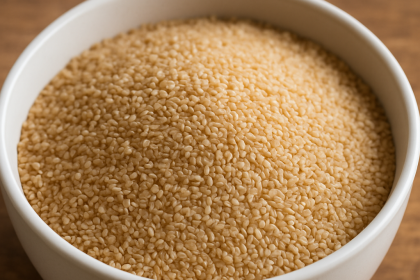That bagel with cream cheese might be calling your name every morning. But if weight loss is your goal, it might be time to reconsider your breakfast lineup. The science is getting clearer by the day – protein in the morning isn’t just a bodybuilder’s strategy. It might be one of the most overlooked tools in sustainable weight management.
We’ve all heard that breakfast is the most important meal of the day. That old advice has been questioned in recent years with the rise of intermittent fasting. But what if the truth isn’t about whether you eat breakfast, but what your breakfast consists of? For those who do eat morning meals, the protein content might make all the difference between struggling with cravings all day and sailing through to dinner with your eating plan intact.
The metabolic morning advantage
When you wake up, your body has been fasting for hopefully around 8 hours. Your first meal doesn’t just break this fast – it sends powerful signals that set the metabolic tone for your entire day. A carb-heavy, low-protein breakfast spikes your blood sugar quickly, leading to an inevitable crash that can trigger cravings and hunger pangs well before lunchtime.
In contrast, protein takes longer to digest than carbohydrates, providing a steady, gradual release of energy that keeps your blood sugar levels stable. This alone can dramatically reduce those mid-morning vending machine visits that sabotage so many weight loss efforts.
Morning also presents a unique metabolic window. Your insulin sensitivity is typically highest in the morning, meaning your body is primed to use nutrients most efficiently at this time. Protein taken during this window appears to be utilized more effectively for muscle maintenance and growth compared to the same amount consumed later in the day.
The calorie-burning edge
Protein has a significantly higher thermic effect compared to fats or carbs, meaning your body burns more calories just digesting it. Some research suggests that as much as 20-30% of protein’s calories are burned during digestion, compared to only 5-10% for carbs and 0-3% for fats. Essentially, you’re burning more calories while doing nothing different except changing what’s on your plate.
Morning protein also helps preserve muscle mass during weight loss. When you’re in a calorie deficit, your body doesn’t just burn fat – it can break down muscle tissue too. Adequate protein, especially in the morning when your body is more receptive to muscle protein synthesis, helps ensure that more of your weight loss comes from fat rather than muscle. Since muscle burns more calories at rest than fat does, maintaining it is crucial for keeping your metabolism humming.
The hunger hormone effect
Have you ever noticed how some breakfasts leave you starving an hour later, while others keep you satisfied until lunch? That difference often comes down to protein content.
Protein stimulates the production of peptide YY, glucagon-like peptide-1, and cholecystokinin – gut hormones that signal fullness to your brain. At the same time, it reduces levels of ghrelin, your primary hunger hormone. This hormonal orchestra creates a powerful sense of satisfaction that carb-only breakfasts simply can’t match.
A landmark study found that participants who ate a high-protein breakfast consumed about 135 fewer calories at lunch compared to those who ate a low-protein morning meal with the same calorie count. Over time, these relatively small daily calorie reductions can add up to significant weight loss without requiring willpower or hunger.
The brain chemistry connection
Perhaps most fascinating is protein’s effect on your brain chemistry and decision-making. Starting your day with protein helps stabilize dopamine levels, which play a crucial role in regulating cravings, impulse control, and reward-seeking behavior. Many people find they make better food choices throughout the entire day when they’ve had a protein-rich breakfast, a benefit that extends far beyond the simple caloric value of the meal itself.
Even more impressive, brain scans show reduced activity in food-reward centers throughout the entire day following a protein-rich breakfast, suggesting less preoccupation with food and decreased cravings, particularly for high-calorie, processed foods.
In real-world terms, this might mean the difference between being able to focus on your work all morning versus being distracted by hunger pangs and food thoughts. It might determine whether you can wait until your planned healthy lunch or end up grabbing whatever’s convenient when hunger strikes unexpectedly.
Morning protein powerhouses
Understanding the benefits of morning protein is one thing. Actually implementing it consistently is another challenge altogether. Here are some protein-rich options that can work for different lifestyles and preferences:
Eggs remain one of the most versatile and complete protein sources for morning meals. A simple three-egg omelet provides roughly 18-21 grams of high-quality protein along with valuable micronutrients. Adding vegetables increases the volume and nutrition without significantly changing the calories. For those concerned about cholesterol, recent research has largely exonerated egg consumption for most people, but egg whites offer a lower-calorie alternative with most of the protein intact.
Greek yogurt offers convenience with impressive protein content. A typical 6-ounce serving contains 15-20 grams of protein, making it comparable to a small meal of meat. Topping it with a small handful of nuts adds healthy fats that further slow digestion and extend satiety. Avoid fruit-flavored varieties with added sugars, which can undermine the blood sugar stabilizing benefits. Instead, add fresh berries for sweetness and additional fiber.
Protein smoothies offer a solution for those who aren’t hungry upon waking or need a portable option. A scoop of quality protein powder blended with unsweetened almond milk and a tablespoon of nut butter provides around 25 grams of protein with minimal preparation. Adding a handful of spinach contributes valuable micronutrients without affecting the taste. For those who find protein powders unpalatable, silken tofu can serve as a neutral-tasting protein base in smoothies.
For those who prefer savory breakfasts, dinner leftovers can make excellent morning meals. There’s no nutrition law stating breakfast must consist of traditional breakfast foods. Last night’s grilled chicken and vegetables might be an ideal protein-rich way to start your day, with the added benefit of requiring zero morning preparation.
Practical implementation strategies
The protein target for a weight-loss-supporting breakfast appears to be around 25-30 grams for most adults. This level has been shown in research to significantly impact satiety hormones and subsequent food intake. For reference, this equals approximately:
- 4 eggs
- 1 cup of Greek yogurt with 2 tablespoons of pumpkin seeds
- 3 ounces of smoked salmon with 1/4 cup of cottage cheese
- A smoothie with 1 scoop of protein powder and 1 cup of milk
While hitting this target exactly isn’t necessary, aiming for at least 20 grams of protein can make a substantial difference compared to typical low-protein breakfast choices.
Meal prepping can be a game-changer for consistent morning protein. Egg muffins made in a muffin tin with eggs, vegetables, and perhaps a small amount of cheese can be prepared in batches and refrigerated for up to four days. Two or three of these provide an excellent protein foundation in less than two minutes of preparation time on busy mornings.
For plant-based eaters, combining protein sources becomes important for getting sufficient amino acids. A breakfast bowl with quinoa, black beans, and pumpkin seeds provides complementary proteins that together form a complete amino acid profile. Adding nutritional yeast flakes contributes a cheese-like flavor along with additional protein.
For those who practice intermittent fasting and skip traditional breakfast, the same principles apply to your first meal, whenever it occurs. Breaking your fast with a high-protein meal rather than carb-heavy options provides the same metabolic and satiety benefits.
Overcoming common challenges
If morning appetite is an issue, start small. Even half a protein serving is better than none, and many people find their morning appetite improves once the habit is established. A protein shake made with just water and protein powder can provide 20+ grams of protein in just a few sips, making it manageable even for those who wake up without hunger.
Consistency matters more than perfection. Aim for protein-rich mornings on most days, knowing that the occasional deviation won’t derail your progress. The goal is establishing a sustainable pattern that works with your lifestyle and preferences, not creating another restrictive food rule that generates stress.
Remember that weight loss ultimately requires a caloric deficit, so portion control still matters even with protein-rich choices. The advantage of higher protein is that it makes maintaining that deficit significantly more comfortable and sustainable.
The best strategy is the one you’ll actually follow consistently. Experiment with different protein sources and meal styles to find what works best with your preferences, schedule, and cooking abilities. The simple act of prioritizing protein at your morning meal might be the missing piece in your weight loss puzzle, turning what once felt like an uphill battle into a much more manageable journey.
Your mother might have been right about breakfast being important after all – she just didn’t mention that the protein content is what really makes the difference.















